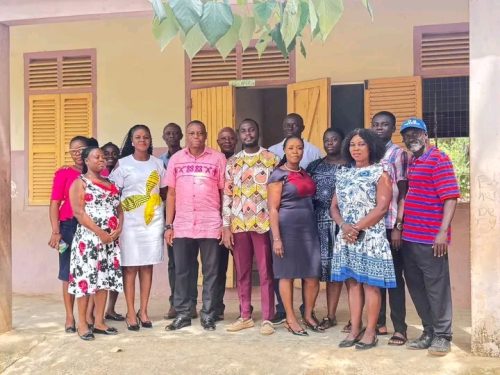

A leading sanitation advocacy group, Damak Sanitation Health Watch-Ghana, has issued a strong warning to the government over plans to cancel the sanitation contract of Zoomlion Ghana Limited, cautioning that such a move could trigger a sanitation crisis nationwide.

In a public statement released on Monday, the organization expressed deep concern over the deteriorating sanitation conditions in urban centers and questioned the government’s timing and rationale behind the potential repeal of a long-standing contract with one of the country’s key sanitation service providers.

“The decision to cancel Zoomlion’s contract, if not carefully thought through, will have far-reaching public health and economic consequences,” said Mr. B. B. Asalimba, General Secretary of Damak Sanitation Health Watch-Ghana.

According to the group, Zoomlion has been instrumental in maintaining sanitation standards through its nationwide network of trained workers, waste collection infrastructure, and strategic logistics. Removing the company from the waste management ecosystem, Damak argues, would likely lead to increased waste accumulation, sanitation-related diseases, and job losses for thousands employed in the sector.
Ghana’s sanitation crisis, particularly in densely populated cities like Accra and Kumasi, has long been a national concern. With limited infrastructure and inconsistent enforcement of environmental regulations, communities across the country continue to battle poor waste management and unsanitary living conditions.

While acknowledging the need for reforms in the sector, Damak urged the government to adopt a more inclusive and forward-thinking approach. Among their recommendations are the introduction of community-based waste management programs, including regular clean-up days, waste segregation education, and the formation of local waste committees to boost accountability and public participation.
Damak also called on the government to move away from sole-source contracting and instead adopt competitive tendering for sanitation service provision — a shift they believe would ensure fairness, transparency, and innovation in the sector.
The organization highlighted its own efforts to incorporate technology into sanitation monitoring, including the use of the Google Digital Address System to identify and track sanitation hotspots. They also proposed leveraging mobile applications to report and monitor waste management at the community level.
“This is not the time to weaken existing systems,” Asalimba noted. “Instead, we should be building on what works while embracing new, inclusive models that bring local communities into the solution.”
The statement concluded with a call for dialogue among stakeholders — including government officials, civil society groups, and private sector players — to forge a sustainable path forward in addressing Ghana’s sanitation challenges.

Enock Akonnor is an experienced Ghanaian journalist, based in Kumasi and currently serves as the CEO and Managing Editor of www.leakyghana.com.
With a wealth of expertise built over many years in the media industry, he has earned a solid reputation as one of Ghana’s most sought-after journalists.
Contact:
📞 +233 541 921 562
✉️ enockakonnor2013@gmail.com








